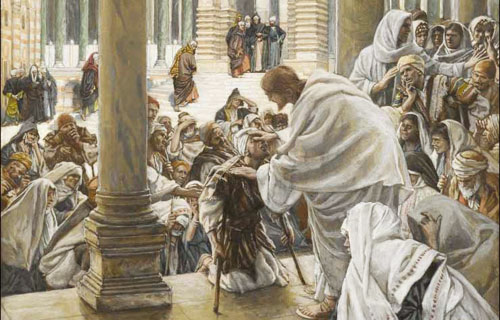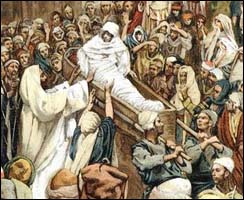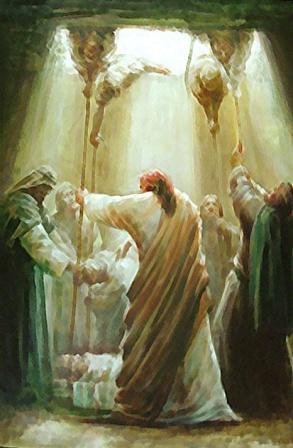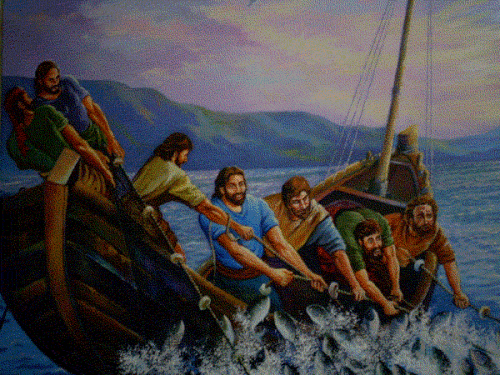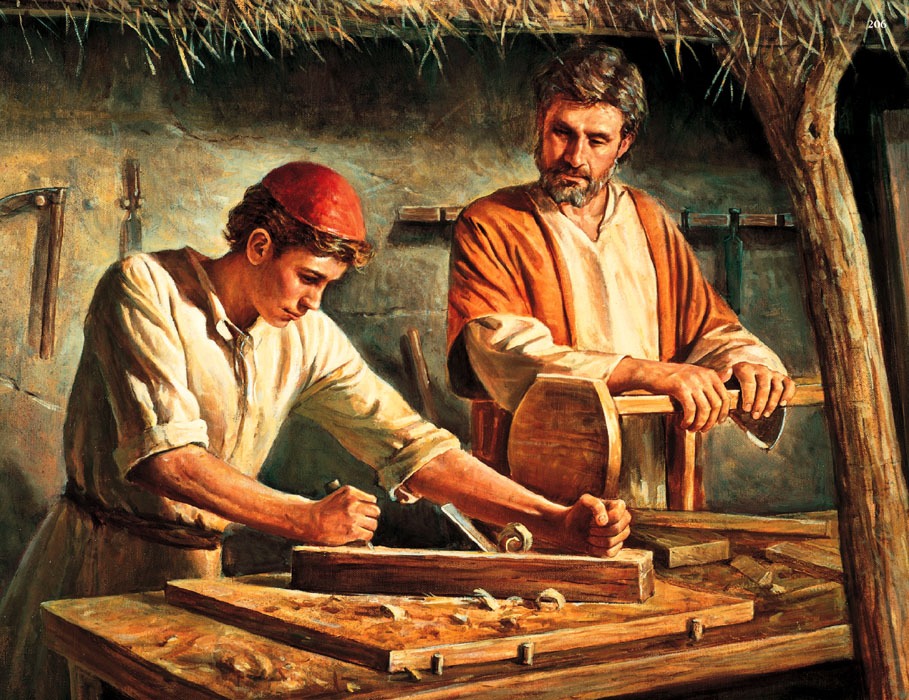 Then one of the Pharisees invited Him to eat with him. He entered the Pharisee’s house and reclined at the table. And a woman in the town who was a sinner found out that Jesus was reclining at the table in the Pharisee’s house. She brought an alabaster jar of fragrant oil and stood behind Him at His feet, weeping, and began to wash His feet with her tears. She wiped His feet with the hair of her head, kissing them and anointing them with the fragrant oil.
Then one of the Pharisees invited Him to eat with him. He entered the Pharisee’s house and reclined at the table. And a woman in the town who was a sinner found out that Jesus was reclining at the table in the Pharisee’s house. She brought an alabaster jar of fragrant oil and stood behind Him at His feet, weeping, and began to wash His feet with her tears. She wiped His feet with the hair of her head, kissing them and anointing them with the fragrant oil.When the Pharisee who had invited Him saw this, he said to himself, “This man, if He were a prophet, would know who and what kind of woman this is who is touching Him—she’s a sinner!”
Jesus replied to him, “Simon, I have something to say to you.”
“Teacher,” he said, “say it.”
“A creditor had two debtors. One owed 500 denarii, and the other 50. Since they could not pay it back, he graciously forgave them both. So, which of them will love him more?”
Simon answered, “I suppose the one he forgave more.”
“You have judged correctly,” He told him.
(Note: this was a separate event from the story in Matt. 26:6-13, Mark 14:3-9, and John 12:1-8.)
Simon the Pharisee invites Jesus to a feast. Although we do not know his motivation, we have no reason to assume he was out to get Jesus. Perhaps he was a follower, or perhaps he was curious to get to know Jesus better away from the crowds. The meal was apparently a public celebration, possibly connected with a Jewish festival or the Sabbath. At such times uninvited guests could enter the open door, sit by the wall, listen and watch, and perhaps receive leftover bits of food. Jesus assumes the normal position of reclining at the table for the meal.
The woman in this story comes not to observe the party or beg for food. She comes to see Jesus and beg for forgiveness. She believes his message of forgiveness and wants to honor him. She carries expensive perfume in an ornate alabaster jar. We know not why she wept. Perhaps she was overcome at being in the presence of Jesus. Perhaps she wept as she remembered her past transgressions. Perhaps her tears overflowed at the joy of her forgiveness. Perhaps it was a mixture of all three.
As she washed Jesus' feet, she anointed them with the expensive perfume rather than the standard olive oil. The fragrance filled the room, and all eyes must now be upon her. Rather than wiping his feet with a towel, she dried them with her own unbound hair.
The Pharisees responded with horror. How could Jesus let this sinful woman touch him? Did he not know her reputation? If he was such a great prophet, could he not sense her sinfulness? Why did he not rebuke and dismiss her from the house?
Jesus displayed his prophetic nature in a different way. Sensing the hypocrisy in Simon's heart, he tells a short parable. A banker loans money to two men - two year's wages for one and two month's wages for another. The banker shocks them both by forgiving their loans. But which would be most excited? Simon has no choice but to respond that the one receiving the most forgiveness would love the banker more. Jesus acknowledges that this is the right answer.
Of course all sins, and all sinners, are equal in the sight of God. James 2:10 says, "For whoever keeps the whole law but fails in one point has become accountable for all of it." But it can be easier for those with more obvious sins to realize their need for forgiveness. We must all reach a point of extreme grieving over our sins before we seek God's forgiveness through the blood of Christ. But none of us are more in need of having our debt forgiven than others. Whether our sins amount to a large or small debt, none of us can repay the "banker". The interest is too high!
The longer I walk with Christ, the "smaller" my sins become. But the sins I commit grieve me more! If you have not received forgiveness through faith in Christ, receive him today. If you are already a believer, pray that God will reveal any sins or hypocrisy in your own heart and uproot it.
As it is written:
“None is righteous, no, not one;
no one understands;
no one seeks for God.
All have turned aside; together they have become worthless;
no one does good,
not even one...”
For by works of the law no human being will be justified in his sight, since through the law comes knowledge of sin... for all have sinned and fall short of the glory of God, and are justified by his grace as a gift, through the redemption that is in Christ Jesus, whom God put forward as a propitiation by his blood, to be received by faith. - Romans 3:10-12, 20, 24-25

